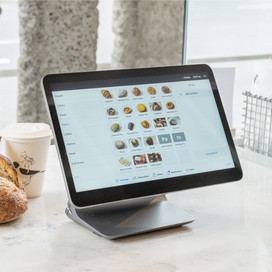Table of contents
Do you prefer hands-on work? Would you rather spend time out and about than in an office cubicle? Are you blessed with an entrepreneurial mind? If the answer to each of these questions is ‘yes’, you might consider becoming the owner of a plumbing business.
Plumbing is a profession almost as old as civilisation itself – we can’t survive long without water, after all. This means that a plumber’s skill set will forever be in demand – unlike in other industries, you can be confident that your business won’t become outdated or that the work will dry up (pun intended.) This also means that a well-run plumbing business has incredible potential for growth.
As the owner of a plumbing business, you’ll provide plumbing services to anyone who needs them: homeowners, businesses, government agencies, nonprofits and more. While water is critical for life, it can also be a damaging force, so plenty of responsibility sits on the shoulders of a plumbing business… but the rewards can be more than worth it.
The opportunity is there. The question now is how to start your own plumbing business – which we’ll be answering below.
The benefits of starting your own plumbing business
Before we dive into how to start a plumbing business, let’s address why should you choose this form of business over another?
There’s plenty of work: We need water to drink, to clean, to cook and to work. There will always be a demand for the skills that a plumbing business offers.
Plumbers are paid well: Because plumbing expertise is highly sought after, and because Australian tradies are generally paid well, plumbers and plumbing business owners have the potential to earn a good wage.
You get to work with your hands: You don’t have to be stuck in an office (unless you’d like to be!) As the owner of a plumbing business, you have the opportunity to work on-site. As your business grows, you may also be given the chance to trade working in your business to working on your business and letting your team work with you.
You steer your own future: As a business owner, you’ll enjoy far greater control over your life. What you do with your plumbing business – the shape it takes, the size it grows to, how it is run, when and how much you work – is totally up to you!
Requirements to start a plumbing business
What skills, qualifications, permits and licences will you need to start your plumbing business? Let’s take a look at the main considerations in Australia.
Skills and knowledge
To own a plumbing business, you’ll first need to become a fully qualified plumber, which means you’ll need to earn a trade. This is done by undertaking a four-year apprenticeship, which sees you learning within someone else’s business while earning a Certificate III in Plumbing.
It should be noted that plumbing apprenticeships aren’t nationally regulated. While the same knowledge and skills are generally covered, the specifics of each apprenticeship will vary from state to state. And while a four-year apprenticeship will give you a solid foundation of plumbing knowledge, it won’t touch a number of more specialised areas such as gas fitting, fire protection and mechanical plumbing. You’ll need to undertake a dedicated certificate after you’ve finished your apprenticeship to upskill in these disciplines.
Plumbing contractor’s licence
In order to own a plumbing business you not only need to gain a plumbing trade, you also need to hold a plumbing contractor’s licence. The authorities in charge of distributing these licences change from state to state:
- NSW: Fair Trading
- VIC: VBA
- QLD: QBCC
- SA: State Government
- WA: Plumbers Licensing Board
- TAS: CBOS
- ACT: ACT Government
- NT: Plumbers and Drainers Licensing Board
Some states don’t require much more than a trade certificate to gain a plumbing contractor’s licence. Other states require more boxes to be ticked, such as police checks and proof of the necessary finance/insurance.
Once you’ve gained your contractor’s licence, you can then go about setting up your business. Here’s a few key steps.
Business registration
Like any business owner, you’ll need to register your plumbing business by obtaining an Australian Business Number (ABN) or an Australian Company Number (ACN). While more complex to set up, a company structure helps to shield you from liabilities associated with your business, so most plumbing business owners choose to obtain an ACN.
Insurance for plumbing businesses
Insurance is a key consideration in a plumbing business, as working with water can be risky. You need to think about public liability, worker injuries, equipment damage, theft, fire, and a wealth of other potential issues.
Many insurers offer trade-specific coverage, which tends to insure against the following:
- Product and public liability to guard against negligence resulting in property damage or personal injury.
- Fire, flood and other adverse events.
- Theft of money or other assets.
- Damage to your premises or other assets.
Essential equipment needed to start a plumbing business
Speaking of equipment, what gear do you need to kit out your new business? The answer will depend on the type of work you plan to undertake, but here is a basic list:
- Power and hand tools: Drills, press fitters, pipe benders, pipe and hose cutters, channel locks, wrenches, screwdrivers, faucet keys, plungers, metal files, augers, drain snakes, saws.
- Diagnostic tools: Borescope, plumber’s torch, leak/moisture detector, tape measure.
- Consumables: Plumbing adhesives, tapes, fittings.
- Personal Protective Equipment (PPE): Gloves, goggles, face masks.
- Office tools: Computers, printers, scanners, phones, business software.
Market your business
Qualified, insured and equipped, it’s time for you to open. But the world of contracting is competitive, so you’ll need to conduct some savvy marketing in order to lure customers in:
- Create a website: Every business needs a website in order to succeed. The best, like those created with Square Online, will sell your services, take bookings and payments, and make you far more Googleable.
- Create a Google My Business profile: A Google Business Profile (AKA Google My Business) is an entry into Google’s business directory that you can add yourself. This entry ensures your business is displayed within Google Maps or on the search results page when a customer searches for the things you offer.
- Set up social profiles: People trust other people, which is what makes social media such a powerful marketing tool. Set up profiles across the main platforms (B2B companies could focus on LinkedIn, whereas customer facing companies can focus on platforms such as Instagram and Facebook), post regularly, engage with your audience and encourage people to leave reviews!
- Use word of mouth: It might feel old fashioned, but word of mouth continues to be the most effective form of marketing. Encourage your personal network to tell their friends, family and colleagues about your business, and consider offering a discount or some other form of incentive to anyone who refers a new customer your way.
How much can you charge customers?
How much will you charge for your services? Plumbers can make money in three main ways: through call-out fees, labour and mark-ups on products and parts. Your rates should be set at a level that customers feel is fair, but that also ensures you can cover your costs comfortably – which means an inner-city plumber may charge more than a country plumber.
The average hourly rate for plumbers in Australia in 2022 is $110/hour, spread across a range of $80-$135. While the market will dictate your pricing to a degree, at the end of the day what you charge is up to you!
How Square can help plumbing businesses
Now that you know how to set up a plumbing business, how can Square help? With our complete suite of affordable and easy-to-use business tools, we aim to make the technology side of your plumbing venture a little bit easier.
Payment systems
- Square hardware: Whether you want a simple, portable tool like Square Reader which is ideal for plumbers on the road, a slightly more feature-rich solution like Square Terminal, or a top of the line system like Square POS that is built for plumbers with dedicated premises, our hardware will ensure your payments are handled instantly, securely and cost-effectively.
- Square software: If you work on the road and take post-payment, as many plumbers do, you don’t necessarily need a physical payment system at all, as Square Virtual Terminal turns your computer or laptop into a payment processing station.
- Loyalty programs: Return customers are the best customers, and they’re far easier to create when you offer a loyalty program like Square Loyalty.
Invoicing
- As a plumber you’ll need to be able to produce professional quotes and tax invoices; tasks that are made super simple by Square Invoices.
Online booking system
- Scheduling your work can be a time-consuming task for a plumber, particularly if you do high-turnover, short-term work like residential and emergency plumbing. Square Appointments allows your customers to book your time and make payments upfront, seriously simplifying scheduling.
That, in basic terms, is how to start a plumbing business – what you do with this information is entirely up to you. If you decide to dive into the world of water, know that Square will be there with all the tech you need to make your new venture as smooth, enjoyable and successful as possible.
Get in touch with our friendly team to learn more.
This article is only for educational purposes and does not constitute legal, financial or tax advice. Make sure you consult a professional regarding your unique business needs.
![]()











